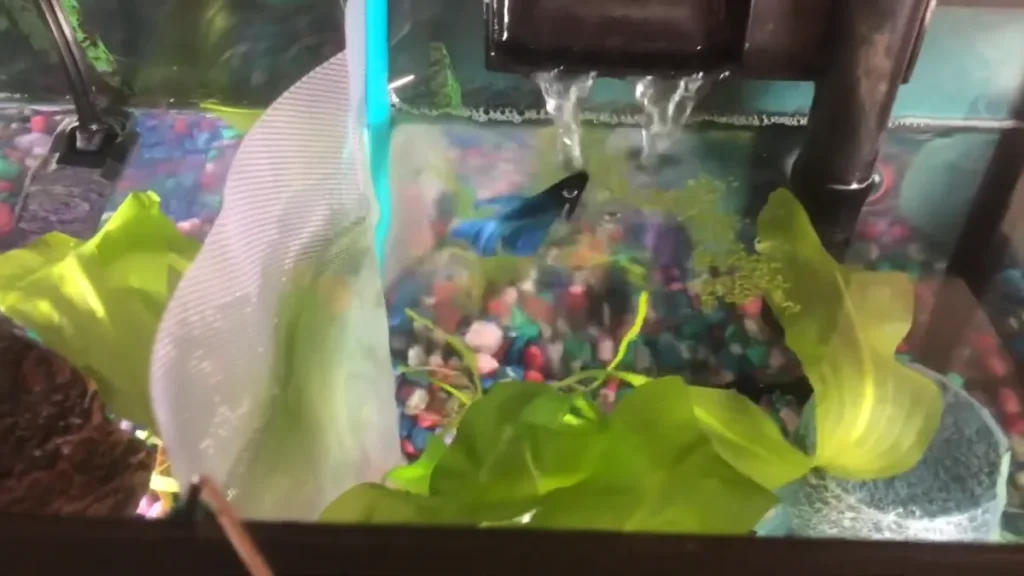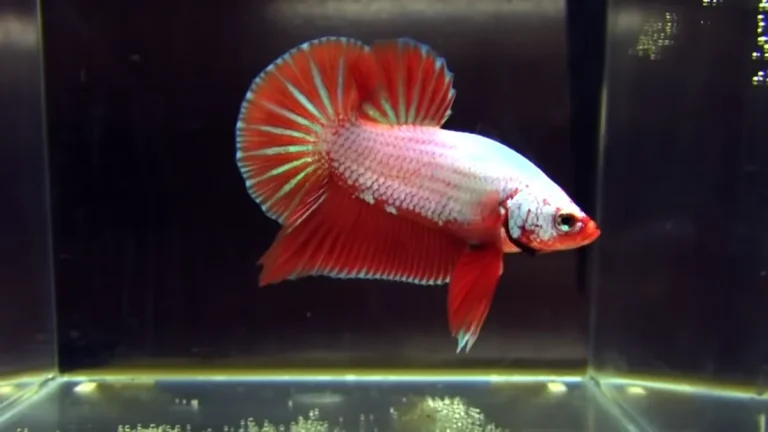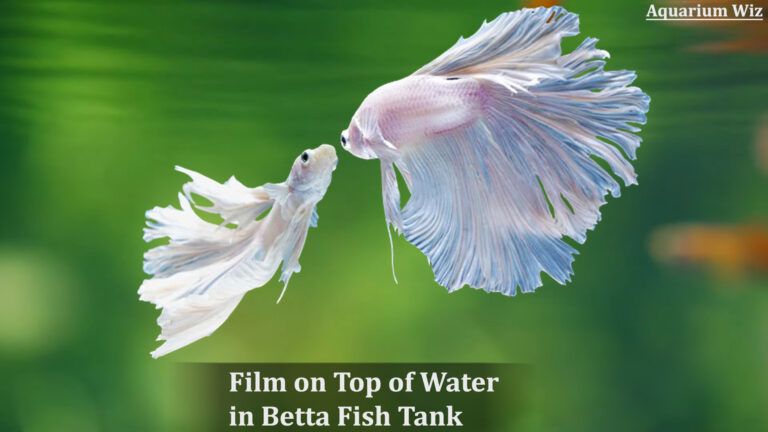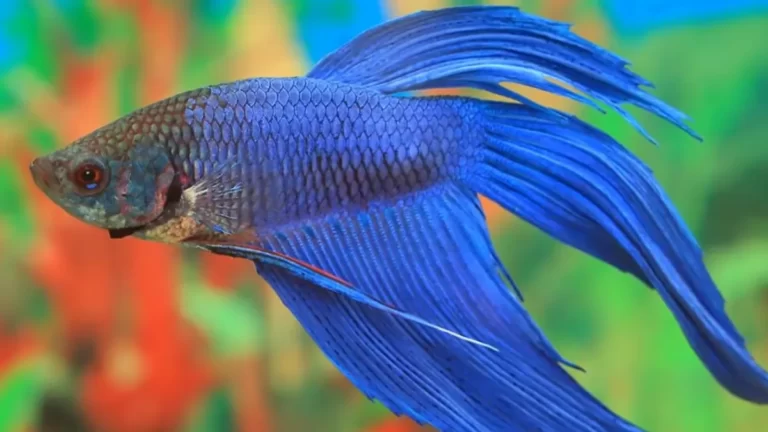Is Duckweed Good for Bettas? [Explain]
Hey there, fellow fish enthusiasts! Welcome to an underwater adventure where we explore the fascinating world of betta fish care. Today, we’re diving deep into the topic of duckweed and its potential benefits for our beloved bettas. As responsible caretakers, we know that providing a balanced diet is key to ensuring our finned friends thrive.
Join me as we uncover the wonders of duckweed and why it could be the missing piece in our bettas’ nutritional puzzle.

Is Duckweed Good for Bettas?
When it comes to meeting the dietary needs of our bettas, duckweed emerges as an exciting contender. Let’s explore the compatibility of bettas with duckweed and uncover its exceptional nutritional value that can enhance the health and happiness of our aquatic companions.
Compatibility of Bettas with Duckweed
Betta fish, also known as Siamese fighting fish, are natural-born hunters, and their diet should mimic their wild feeding habits. Duckweed aligns perfectly with their preferences, as it provides a similar floating plant experience reminiscent of their natural habitat. Plus, introducing duckweed into your betta’s diet can stimulate their natural foraging behavior, keeping them mentally stimulated and engaged.
Nutritional Value of Duckweed for Bettas
Duckweed is not just any ordinary aquatic plant; it packs a nutritional punch that can significantly benefit our bettas. Let’s take a closer look at the specific advantages it offers:
Protein Powerhouse:
Duckweed boasts protein levels ranging from 40-50%, making it a high-quality protein source for our fishy friends.
These proteins are rich in amino acids, promoting muscle development, fin regeneration, and vibrant coloration.
Vitamins and Minerals Galore:
Duckweed is a treasure trove of vitamins and minerals that contribute to bettas’ well-being.
Vitamin A supports their immune system, eye health, and reproductive functions.
Vitamin C boosts their immune response, reducing the risk of infections and diseases.
Calcium contributes to strong bones, healthy scales, and proper muscle function.
Addressing Concerns:
While duckweed offers numerous benefits, it’s important to address potential concerns and ensure we’re providing the best care for our bettas:
Balance is Key:
Duckweed should not be the sole component of a betta’s diet. Variety is crucial to ensure a balanced and complete nutritional intake.
Supplement duckweed with high-quality betta pellets or flakes to meet all their dietary requirements.
Hygiene and Tank Maintenance:
Monitor duckweed growth to prevent overpopulation, as excess duckweed can affect water quality and oxygen levels in the tank.
Perform routine tank maintenance, including water changes and filtration, to maintain a healthy environment.
Do Bettas Like Duckweed?
Bettas are captivated by the allure of duckweed, thanks to their natural feeding behaviors and preferences.
Let’s explore why our finned friends may develop a special affinity for this vibrant aquatic plant:
Natural Feeding Behaviors:
Bettas are naturally attracted to small floating plants like duckweed, resembling their prey in the wild. It satisfies their hunting instincts.
Environmental Enrichment:
Duckweed not only provides a tasty meal but also enriches your betta’s environment. Watching them interact with and forage for duckweed can be a source of entertainment.
Factors Influencing Bettas’ Acceptance of Duckweed:
While most bettas readily accept duckweed, factors such as acclimation and individual preferences may influence their acceptance:
Acclimation Period:
Introduce duckweed gradually into your betta’s diet, starting with small amounts alongside their usual food and increasing the proportion over time.
Individual Preferences:
Just like humans, bettas have their own preferences. Some may devour duckweed eagerly, while others might take a bit more time to warm up to it. Observe their response and adjust accordingly.
Related Post: Is 82 Too Hot for Betta? Understanding the Ideal Temperature for Betta Fish
Can Bettas Eat Duckweed?
Absolutely! Betta fish can indeed feast on duckweed, and it offers several advantages that make it a suitable food source for our aquatic friends.
Digestibility and Consumption:
- Duckweed is easily digestible for bettas due to its soft and delicate nature.
- Bettas can consume duckweed by gently sucking it into their mouths or nibbling on its fronds.
Guidelines for Introducing Duckweed into a Betta Fish’s Diet:
To seamlessly incorporate duckweed into your betta’s diet, consider the following guidelines:
Quality Sourcing:
Obtain duckweed from trusted sources to ensure it’s free from contaminants and pesticides.
Cultivate your own duckweed in a separate container to have a readily available supply of this nutritious plant.
Gradual Introduction:
Begin by offering small portions of duckweed as a supplement to your betta’s regular diet.
Observe their response and adjust the quantity accordingly, keeping in mind the need for a balanced diet.
Advantages of Feeding Betta Fish Duckweed:
Now that we’ve explored the compatibility, nutritional value, and acceptance of duckweed by bettas, let’s delve into the specific advantages it offers:
- Enhanced Vibrancy:
- The vitamins, minerals, and amino acids in duckweed contribute to bettas’ vibrant coloration, making them even more visually striking.
- Improved Digestion:
- Duckweed’s soft and easily digestible nature ensures bettas can efficiently process and absorb the nutrients, promoting a healthy digestive system.
- Optimal Growth and Development:
- The protein content in duckweed supports bettas’ growth, fin regeneration, and overall development, helping them reach their full potential.
Duckweed vs. Other Betta Fish Foods:
Let’s compare and contrast the nutritional value of duckweed with other common betta fish foods to understand its unique advantages:
- Nutritional Superiority:
- Duckweed surpasses many traditional betta fish foods in terms of protein content, vitamins, and minerals.
- While pellets and flakes offer a balanced diet, incorporating duckweed adds a natural and nutrient-rich component.
- Natural Foraging Experience:
- Unlike processed betta fish foods, duckweed allows bettas to engage in their natural foraging behaviors, making mealtime a more enriching experience.
- Varied Diet Benefits:
- Combining duckweed with other high-quality betta fish foods creates a varied diet that helps prevent nutritional deficiencies and promotes optimal health.
Here’s an example of a table comparing the nutritional content of duckweed with other common betta fish foods:
| Nutrient | Duckweed | Pellets | Frozen Bloodworms | Brine Shrimp |
| Protein (%) | 40-50 | 30-40 | 15-20 | 20-25 |
| Fat (%) | 5-10 | 5-10 | 1-2 | 2-5 |
| Carbohydrates (%) | 30-40 | 30-40 | 5-10 | 5-10 |
| Fiber (%) | 10-20 | 5-10 | 1-2 | 1-2 |
| Vitamin A (IU/g) | 500-1000 | 200-500 | 50-100 | 100-200 |
| Vitamin C (mg/g) | 20-40 | 10-20 | 5-10 | 5-10 |
| Calcium (mg/g) | 100-200 | 200-400 | 50-100 | 50-100 |
| Iron (mg/g) | 5-10 | 2-5 | 1-2 | 1-2 |
Related Post: Unraveling the Mystery: Why Did My Betta Fish Disappear?
Conclusion:
Duckweed holds tremendous potential as a beneficial addition to a betta fish’s diet. With its high protein content, essential vitamins, and minerals, duckweed can contribute to the overall health, vibrant coloration, and well-being of our bettas. Remember to ensure a balanced diet by incorporating other high-quality betta foods and maintaining a clean tank environment. So go ahead and explore the wonders of duckweed—your bettas will thank you for it!
Related Posts:




